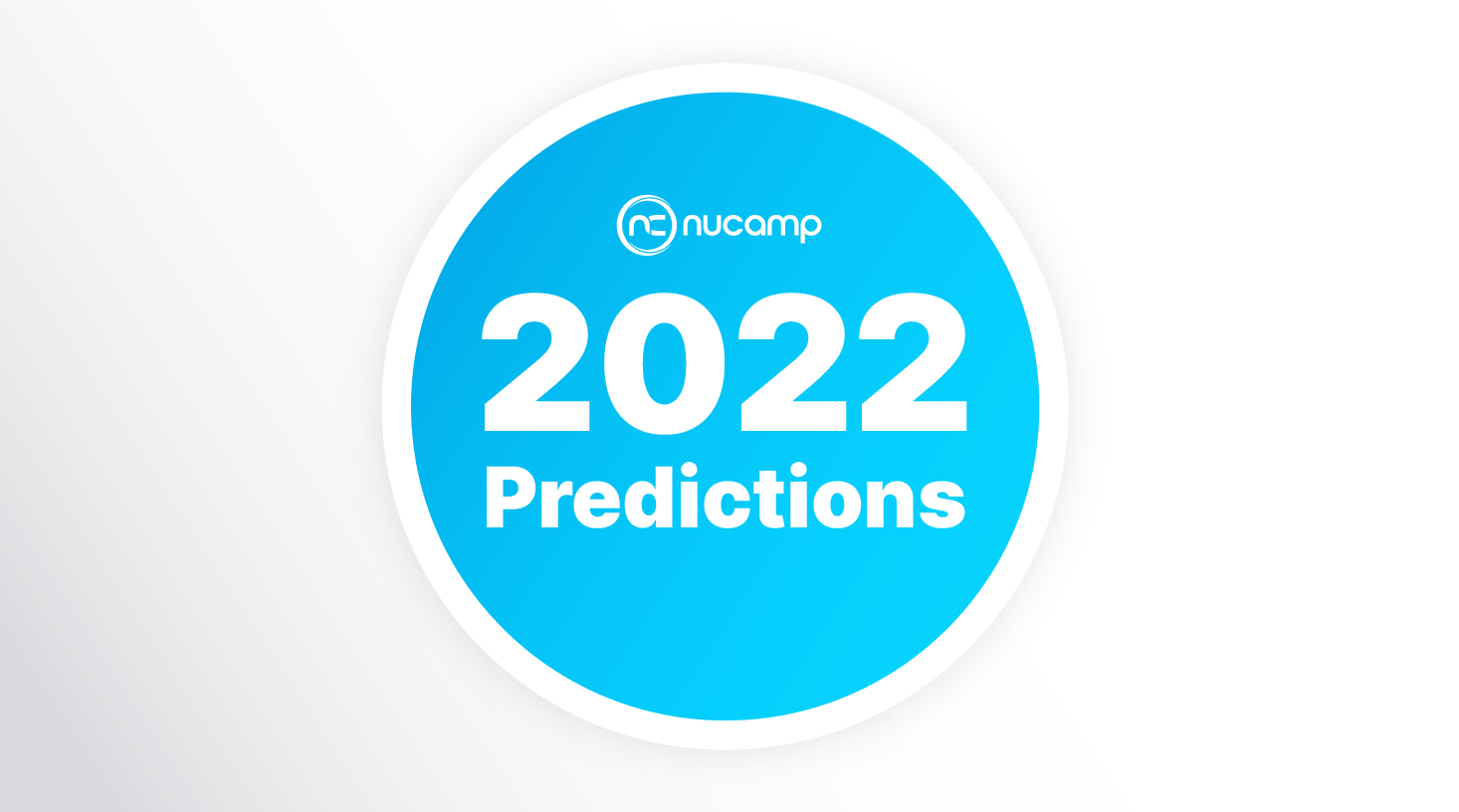Nucamp's Predictions for 2022
Last Updated: June 5th 2024

The New Year brings anticipation of positive change within the tech education industry
As 2021 comes to a close, the future of tech education for 2022 has been on our minds here at Nucamp.
Over the last several years, we’ve seen a number of innovations in online education lead to a growing transformation in the tech education industry.
This transformation has rapidly accelerated because of the COVID-19 pandemic, which has brought great benefits to prospective students, but also some growing pains.
We believe 2022 will be the year we start to see the industry move past some of these growing pains.
Here’s what we anticipate:
1. Education will continue to go digital
Perhaps the most obvious prediction is that education is transforming, especially after the COVID-19 pandemic, and it won’t ever look the same.
Digital learning has been the fastest growing market in education, with a 900% growth since 2000, yet the cost of college continues to increase, outpacing inflation AND family income over recent decades.
As many education institutions were forced to go digital, it has become more difficult to justify its high barrier to entry with its high costs when a significant portion of learning is now online.
From Nucamp’s inception in 2017, our mission has been to make education accessible to everyone. Those who are serious about making education accessible need to be serious about making education affordable.
Our flipped-classroom, hybrid model of learning was already aligned with this growing sentiment among learners and we’ve been passing those savings to students since 2017.
2. ISA's will decline
In the past several years, what we’ve seen from the coding bootcamp space has largely been something other than accessible. In an effort to address the barrier to enter, coding bootcamps introduced Income Share Agreements (ISAs), where students trade a percentage of their future income over 3-5 years for a 14-20 week coding bootcamp.
This removes the up-front cost risk of the barrier, however the high risk remains even though it’s spread out over time. If a job doesn’t work out, they still have to pay it back. ISAs are in a legal gray area that are too open to interpretation and they’ve faced criticism for being predatory and unfair.
In an effort to attract students to high cost bootcamps with ISAs, schools have advertised high job placement rates, which have come under scrutiny and investigation in recent years.
As lawsuits and settlements have occurred, we may be seeing first dominos.
3. Increased scrutiny of graduation and job placement rates
One of the four main legal claims in a recent lawsuit was the misrepresentation of job placement rates.
We’ll see more regulatory powers place bootcamps’ graduation and job placement rates under the microscope.
This will strongly encourage bootcamps to be more accurate and forthright about what they are claiming or face potentially steep consequences.
While Nucamp does not promise jobs, we report on whether graduates are using the skills they learned in the workplace within 6 months.
These Job Skills Rates and Graduation Rates, based on graduate surveys, are updated daily and are publicly available on our website going back to April of 2021.
4. Increase in adoption of the Revature model in the US
In an effort to address the accessibility, students are placed into minimum-wage tech training programs, then upon graduating are placed in a job with a below average salary.
However, if the graduate quits before their two-year contract expires, they could be on the hook for $36,500.
The high demand for low-cost skilled labor makes these graduates who are tied up in the contact attractive hires and therefore will be growth trend in 2022.
Like ISAs, the Revature model is essentially moving the risk around, like a shell game, where students are left guessing about the risk vs reward.
5. More tech apprenticeships
The number of apprenticeships being offered than there were a decade ago is significant with new government support and new investors aiming to bring apprenticeships to tech.
The apprenticeship model shifts the risk of high cost education away from the student/employee to the employer, in exchange for a below average salary and on-the-job training.
While the salaries start off lower to reduce the risk to employers, students don't incur debt or a looming and costly quitting fee if things don't work out.
Nucamp graduates will be very attractive to these employers seeking to recruit already skilled individuals in order to reduce their risk.
We look forward to the advance in affordable, accessible education and for what is to come in the year ahead.
Happy New Year and Happy Coding to all!
Ludo Fourrage
Founder and CEO
Ludovic (Ludo) Fourrage is an education industry veteran, named in 2017 as a Learning Technology Leader by Training Magazine. Before founding Nucamp, Ludo spent 18 years at Microsoft where he led innovation in the learning space. As the Senior Director of Digital Learning at this same company, Ludo led the development of the first of its kind 'YouTube for the Enterprise'. More recently, he delivered one of the most successful Corporate MOOC programs in partnership with top business schools and consulting organizations, i.e. INSEAD, Wharton, London Business School, and Accenture, to name a few. With the belief that the right education for everyone is an achievable goal, Ludo leads the nucamp team in the quest to make quality education accessible


